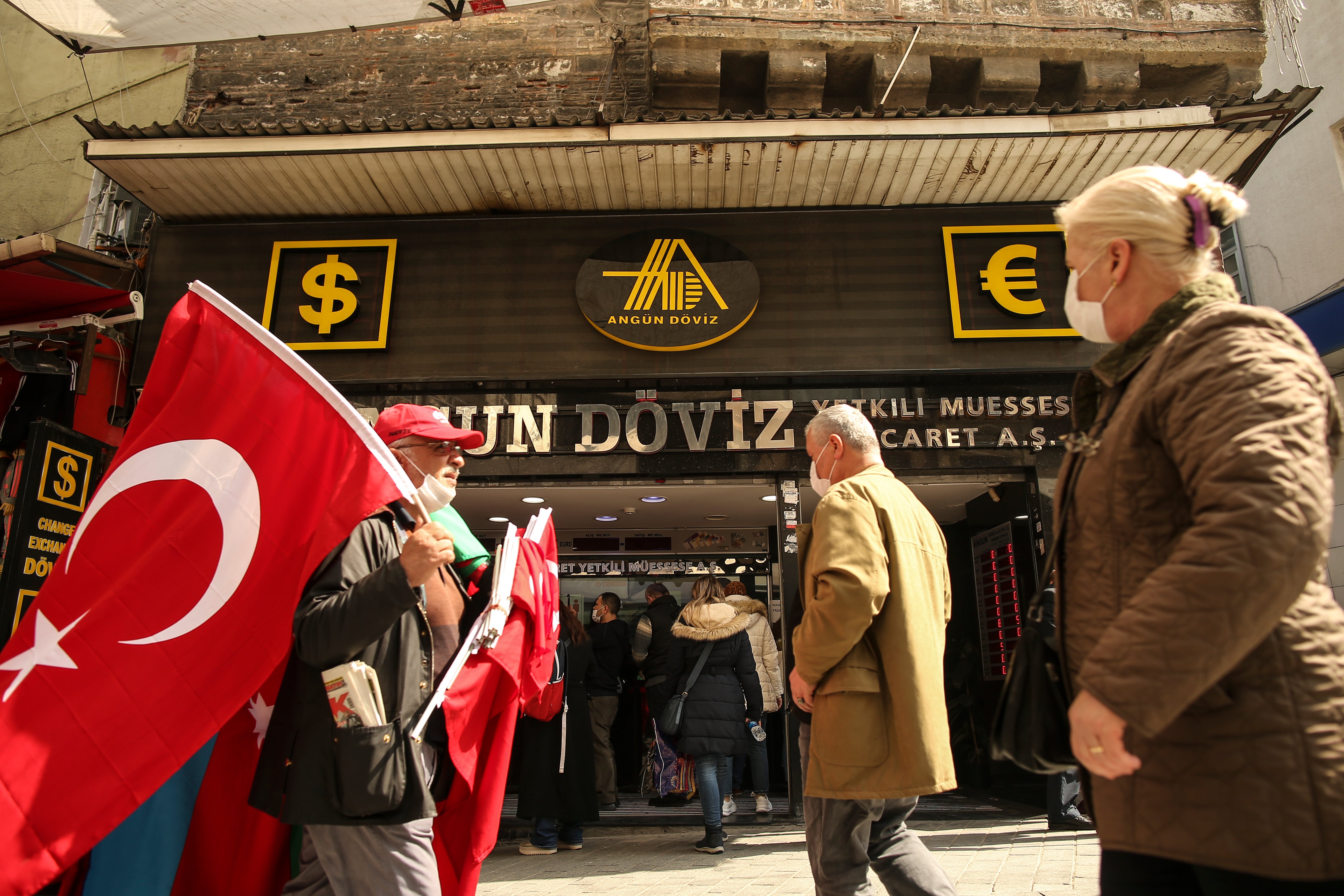Turkish lira plummets after Erdogan fires central bank chief
The Turkish currency has plummeted against the U.S. dollar after President Recep Tayyip Erdogan fired the central bank governor over the weekend for hiking interest rates

Your support helps us to tell the story
From reproductive rights to climate change to Big Tech, The Independent is on the ground when the story is developing. Whether it's investigating the financials of Elon Musk's pro-Trump PAC or producing our latest documentary, 'The A Word', which shines a light on the American women fighting for reproductive rights, we know how important it is to parse out the facts from the messaging.
At such a critical moment in US history, we need reporters on the ground. Your donation allows us to keep sending journalists to speak to both sides of the story.
The Independent is trusted by Americans across the entire political spectrum. And unlike many other quality news outlets, we choose not to lock Americans out of our reporting and analysis with paywalls. We believe quality journalism should be available to everyone, paid for by those who can afford it.
Your support makes all the difference.The Turkish currency plummeted against the U.S. dollar on Monday after President Recep Tayyip Erdogan fired his third central bank head in less than two years, raising concerns about a possible return to the unconventional monetary policy favored by the Turkish president as the country struggles with persistent inflation and currency instability.
Over the weekend, Erdogan dismissed Naci Agbal, who had shored up the lira currency and investor confidence with a strong dose of higher interest rates since being appointed in November.
Agbal was replaced by Sahap Kavcioglu, a banking professor who has argued for lower rates. Kavcioglu’s stance is in line with Erdogan’s stated preferences, but in contradiction to the usual economic thinking.
Typically, higher interest rates shore up a currency and help combat inflation. Erdogan has argued the contrary, that the fight against Turkey’s painfully high inflation requires lower rates, not higher ones.
The market selloff in the lira and Turkish stocks reflect investor fears that interest rates are headed lower, said Maya Senussi, senior economist at Oxford Economics She wrote in a research note that the Turkish central bank leadership “has been removed once too often, leaving the bank with no credibility” and that a surprise rate hike Thursday, “which we took as a good omen, appears to have overstepped President Erdogan’s tolerance limits.”
Higher rates, while they support the currency and battle inflation, can constrain economic growth by raising the cost of borrowing for companies. Despite currency difficulties since mid-2018, Turkey was one of the few countries to post economic growth during 2020, when most struggled due to the pandemic. That was thanks to government stimulus, tax breaks and cheap credit from state-owned banks.
Growth in recent years, however, has been fueled by foreign credit and government stimulus, leaving the economy vulnerable, according to the International Monetary Fund
The lira was trading Monday at around 7.9 against the dollar — nearly 10% down from Friday’s close. It had been weaker earlier Monday at 8.4 per dollar but recovered some of it losses after Finance Minister Lutfi Elvan assured markets that Turkey was committed to free market rules and to a liberal currency exchange regime. The currency has fallen from levels around 4 to the dollar since April 2018.
Agbal, a respected former finance minister, was brought in to lead the central bank after the Turkish lira hit record lows and inflation soared. In his months in office, Agbal had hiked the benchmark rate a total of 8.75 percentage points, working to rebuild the credibility of the central bank after it was damaged by years of unorthodox policies. Agbal’s most recent hike of 2 percentage points on Thursday took the rate to 19%, which was higher than analysts expected. The bank said tight monetary policy would be maintained until inflation, which has hit 15.61%, was brought under control.
Kavcioglu is a banking professor and a columnist at a pro-government newspaper, where he has argued for low interest rates. He previously was a lawmaker in Erdogan’s ruling party. Kavcioglu is the fourth governor to lead the bank in two years.
Ratings agency Moody's said that the decision “increases the risk of renewed pressure on the exchange rate. The surprise move is also further evidence of the complete lack of policy predictability in Turkey and confirms our view of serious institutional weakening in the country over the past several years.”